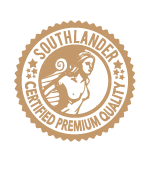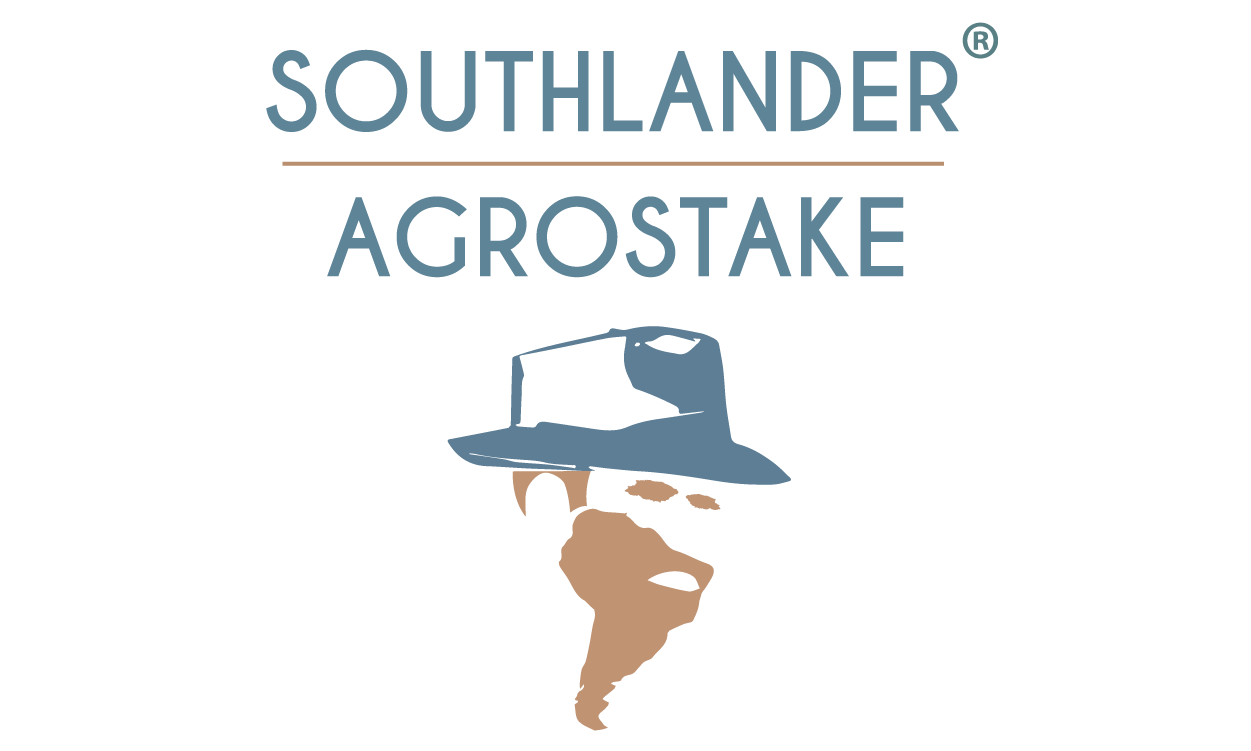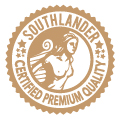
- How does Southlander combine Organic and Industrial?
OUR PHILOSOPHY revolves around organic and regenerative practices in food production and agribusiness in general. We master the practices that strive to foster cycling of resources, promote ecological balance, and conserve biodiversity on the continuous establishing of day-to-day processes on our organic and conventional farms and facilities.
Organic and regenerative practices are critical for promoting the health of our planet, our communities, and our food systems. By supporting these practices, we can help to build a more sustainable and resilient future for all.
Public Health | Organic and regenerative practices promote healthier ecosystems, which in turn lead to healthier crops and healthier food. By avoiding the use of synthetic pesticides, herbicides, and fertilizers, organic farming practices reduce the risk of exposure to harmful chemicals for both farmers and consumers. Regenerative practices, such as crop rotation and cover cropping, help to build healthy soil, which is essential for producing nutrient-rich food.
Environment | Organic and regenerative practices help to protect the environment by reducing soil erosion, conserving water, and supporting biodiversity. Organic farming practices typically use less water and energy than conventional farming, and help to prevent soil degradation and loss. Regenerative practices help to restore ecosystems and promote habitat for a variety of plant and animal species.
Climate Change | Organic and regenerative practices can play an important role in mitigating climate change. By sequestering carbon in the soil, regenerative practices help to reduce greenhouse gas emissions and promote carbon storage. Organic practices also help to reduce emissions by avoiding the use of synthetic fertilizers, which are energy-intensive to produce.
Food Security | Organic and regenerative practices can help to promote food security by supporting local, diverse, and resilient food systems. These practices often prioritize the use of locally adapted crops, which can be more resilient to changing weather patterns and pests. By building healthy soils and diverse ecosystems, these practices can also help to ensure that food production remains productive and sustainable for years to come.
- What are Southlander's farming practices?
OUR FARMING PRACTICES focus on organic and regenerative practices during and in between natural crop cycles, we try to prioritize sustainability and environmental responsibility, and in Ecuador, where there are varied ecosystems and altitude variations due to the Andes mountains, these practices help farmers adapt to changing weather conditions and maintain a healthy soil ecosystem.
We implement practices such as crop rotation, cover cropping, reduced tillage, and natural pest management to maintain soil health, prevent erosion, and reduce the use of harmful chemicals.
Crop Rotation | Crop rotation involves growing different crops in the same field in successive seasons. This practice helps prevent soil erosion, reduce pest and disease pressure, and improve soil fertility. In Ecuador, where there are various weather conditions and ecosystems due to the Andes mountains, crop rotation helps farmers adapt to changing conditions and maintain soil health. For example, farmers rotate crops such as beans, maize, and wheat to help maintain soil fertility and reduce pest and disease pressure.
Cover Cropping | Cover cropping involves planting a crop specifically to cover the soil during fallow periods between main crops. This practice can help to prevent soil erosion, improve soil health, and suppress weeds. In Ecuador, where there are varied ecosystems and altitude variations, cover cropping helps protect the soil during periods of heavy rain or drought, and provide a source of organic matter to improve soil fertility. Farmers plant cover crops such as clover, rye, or vetch.
Reduced Tillage | Reduced tillage involves minimizing the disturbance of soil during planting and cultivation. This practice can help to improve soil health by reducing erosion and preserving soil structure. In Ecuador, where there are varied ecosystems and altitude variations, reduced tillage can help to prevent erosion on steep slopes and improve soil water retention. Farmers use techniques such as no-till planting or minimum tillage to reduce soil disturbance.
Natural Pest Management | Natural pest management involves using non-toxic and non-synthetic methods to control pests and diseases. This practice can help to reduce the use of harmful chemicals and promote biodiversity. In Ecuador, where there are varied ecosystems and altitude variations, natural pest management can help to maintain the balance of beneficial insects and reduce pest and disease pressure. Farmers use techniques such as crop rotation, companion planting, and biological pest control to manage pests and diseases naturally.
- Where does Southlander grow and process its produce?
LOCATION is vital for agribusiness, we grow our produce in Ecuador, as this South American territory enjoys a dollarized economy, modern infrastructure, the generous waters of the Pacific and one of the finest weathers and altitude variations in the region; making it perfect for either rose and flower growing, the closest to the sun with award-winning results, or large-scale food production and processing.
We grow, process and/or package all our produce in various locations of continental Ecuador, and our main offices are located in its capital Quito.
Certified Origin | Origin certification is a crucial aspect of international trade, particularly in the food and agricultural industry. It guarantees that the product's origin has been verified and meets certain standards, ensuring that the product is authentic, of high quality and in compliance with our customers specifications and country regulations.
Production Control | Our staff grows and chooses the best produce available and masterfully processes it before reaching you, we vouch for a premium certified quality product sent to the port or address of your choosing.
Global Reach | Southlander ships its products worldwide to the port or address of your choosing, providing convenient access to high-quality, sustainable agricultural products. Our multilingual 24/7 Customer Service is extremely important for us and has a global reach; we timely engage worldwide with the best produce and the best of prices.
- How does Southlander ensure the quality of its products?
QUALITY ASSURANCE is important at Southlander, as we take great care to ensure the quality and safety of all of our products, including roses, flowers, plants, shrimp, albacore tuna, organic dragonfruit, organic goldenberry, organic coffee, cacao beans and chocolate, organic hemp, and cold-pressed beverages and soups. We have implemented a variety of measures to achieve this, such as third-party certifications, rigorous testing, and quality control measures to provide our clients with the highest quality and safest products possible.
Overall, our commitment to third-party certifications, rigorous testing, and quality control measures allows us to provide our clients with the highest quality and safest products possible.
3rd Party Certifications | All of our farms and facilities are certified by independent third-party organizations, such as USDA Organic, Fairtrade International, and Rainforest Alliance. These certifications ensure that our products are produced in a sustainable and ethical manner and meet strict standards for quality and safety.
Rigorous Testing | We also conduct rigorous testing throughout the production process, from soil and water quality testing to testing for pesticide residue and other contaminants. This helps us to identify any potential issues early on and take corrective action as needed to ensure the safety and quality of our products.
Quality Control | we have implemented comprehensive quality control measures at every step of the production process, from planting and harvesting to processing and packaging. This includes regular inspections and audits to ensure that all of our operations meet our high standards for quality and safety.
- How does Southlander balance the need for efficiency and productivity with sustainable and regenerative practices?
INDUSTRIAL PRODUCTION is in everyone's mind at Southlander as we understand the importance of balancing the need for efficiency and productivity with sustainable and regenerative practices in our agricultural operations. We believe that industrial production is necessary to meet the growing demand for food, but we also recognize the importance of promoting organic and regenerative practices to protect the environment and ensure the long-term sustainability of our operations.
Our goal at Southlander is to strike a balance between efficiency, productivity, and sustainability, to ensure that we meet the growing demand for food while protecting the environment and promoting the well-being of our communities.
Balance | To achieve this balance, we use a combination of modern farming techniques and traditional methods that promote sustainable and regenerative agriculture, such as crop rotation, cover cropping, reduced tillage, and natural pest management. We also implement rigorous testing and quality control measures, as well as third-party certifications, to ensure the quality and safety of our food products, roses, flowers and plants.
Impact | Furthermore, we prioritize the use of renewable energy sources and the reduction of waste in our operations to minimize our environmental impact. And we actively engage with our local communities to promote sustainable practices and social responsibility.
- How Southlander strives to reduce its environmental impact and promote sustainability through its practices?
SUSTAINABILITY is a continuous journey and we are committed to reducing our environmental impact and promoting sustainability through our practices; we recognize that our business has a responsibility to protect the environment and we take that responsibility seriously.
We understand that sustainability is a continuous journey, and we are committed to doing our part to reduce our environmental impact and promote sustainability through our practices.
Energy | To reduce our carbon footprint and promote sustainability, we have invested in renewable energy sources such as solar and wind power. We have also implemented energy-efficient practices such as using LED lighting and energy-efficient equipment in our operations.
Water | Water conservation is critical in the agriculture industry, and we strive to use water efficiently and responsibly. We have implemented drip irrigation systems and other water-efficient technologies on our farms. We also have ongoing programs to reduce water usage in our facilities.
Quality Output | We understand that quality output is crucial for sustainable agriculture. We strive to produce food that is not only environmentally friendly but also of high quality. We employ regenerative and organic farming practices to ensure that our products are nutritious, healthy, and free of harmful chemicals. Our commitment to quality extends beyond our farms, and we implement rigorous testing and quality control measures to ensure that our products meet or exceed industry standards. We believe that producing high-quality food is essential for promoting a sustainable and healthy future for our planet and its inhabitants.
Footprint | Waste reduction is also a top priority for us. We have implemented recycling programs at our facilities and work to reduce waste in our packaging and shipping processes. Additionally, we aim to use compostable and biodegradable materials whenever possible.
- What are the day-to-day benefits of organic and regenerative practices?
BENEFITS OF ORGANIC AND REGENERATIVE PRACTICES are empirically validated on a daily basis through research of the environment, public health, and local economies. By utilizing natural inputs, minimizing waste and pollution, and promoting biodiversity, organic and regenerative farming we can help reduce the impact of agriculture on the environment.
We attest that this approach not only benefits the environment and public health, but also contributes to the economic sustainability of local communities.
Efficiency | By implementing these practices, we can ensure the long-term availability and quality of our products, while also reducing our environmental impact. We are constantly exploring new ways to improve our operations and promote sustainable practices throughout the industry, and we are dedicated to being leaders in this important movement.
Commitment | Additionally, these practices can improve soil health, leading to higher yields and better-quality crops. Southlander is committed to promoting and implementing organic and regenerative practices in its own farming operations and working with local communities to encourage adoption of these practices more broadly; by supporting organic and regenerative agriculture, we can create healthier ecosystems, promote public health, and support local economies.
- How Southlander engages with local communities and supports sustainable agriculture practices?
COMMUNITY ENGAGEMENT excites us and we strive to support sustainable agriculture practices in the local communities where we operate. We partner with local farmers and cooperatives to provide training and resources for sustainable and regenerative practices, as well as to source ingredients for our products.
Our partnerships with local farmers, educational initiatives, and outreach programs aim to build a more resilient and equitable food system while preserving the environment and supporting local economies.
Education | We also offer educational programs and workshops to the community to promote awareness and understanding of the benefits of organic and regenerative agriculture.
Food-4-All | In addition, we participate in outreach initiatives, such as donating produce to local food banks and supporting community events, to give back to the communities that support us.
Social Fabric | Through these efforts, we aim to build strong and lasting relationships with local communities while promoting sustainable and regenerative practices for a healthier planet.
FAQ Southlander
We are not just a collection of farms, a bulk supplier, or our catalogued products; we are foremost both a concept and an experience.

How does Southlander combine Organic and Industrial?
We engage-in and promote organic food production, but as the world ever-grows in food demand, see regenerative industrial production as key business.
DISCOVER
How does buying from Southlander work?
We sell and timely deliver our products worldwide, ask for a quote, and we'll reach you ASAP with pricing and information on all due process.
DISCOVER
How do Southlander catering produce provider services work?
Southlander Custom Catering offers tailored, fresh produce supply solutions for all catering needs, ensuring quality, customization, and efficiency.
DISCOVER


